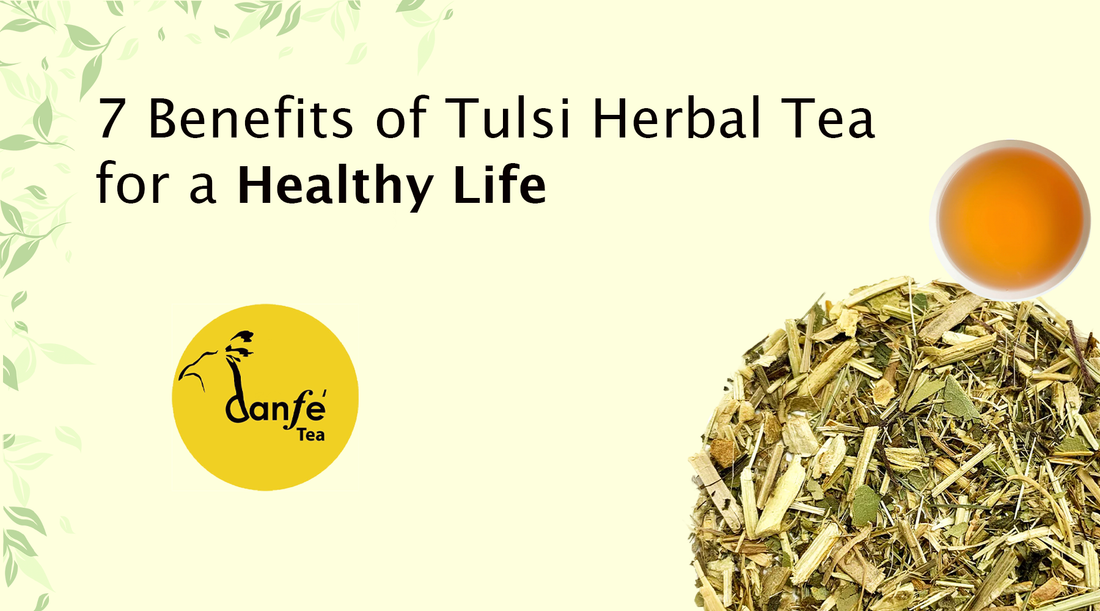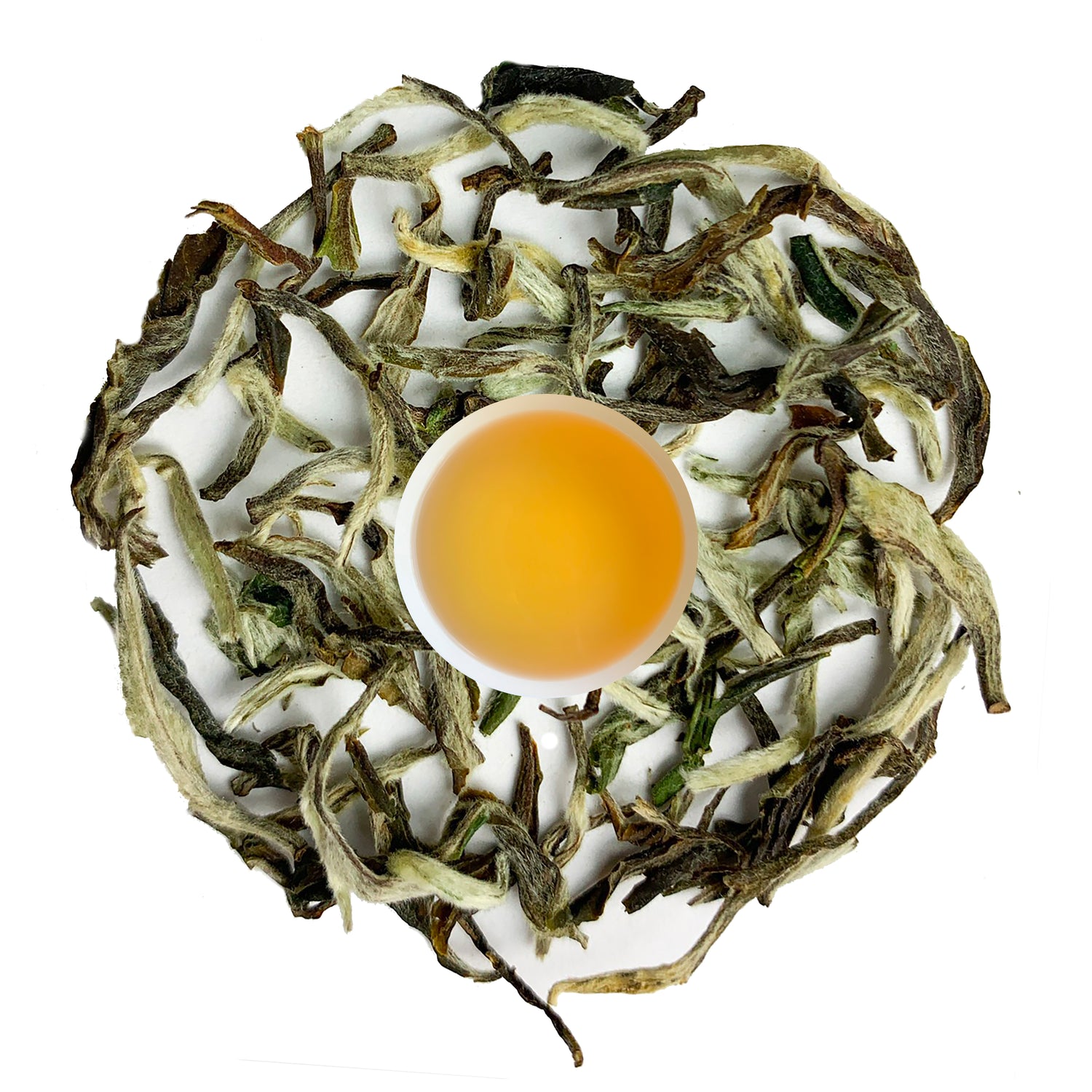
Unlock Tulsi Tea Benefits: Your Daily Dose Of Holy Basil
Tulsi tea—also known as holy basil tea or Ocimum sanctum—has long been revered in Ayurveda as a sacred herb for healing. Today, science is catching up with ancient wisdom, highlighting tulsi’s benefits for modern wellness. From calming stress to supporting immunity and skin health, this caffeine-free tea might just be the ritual your routine is missing.
In this guide, we’ll explore the top health benefits of tulsi tea, how to brew it, when to drink it, and why this herb deserves a permanent place in your self-care lineup.
What Is Tulsi Tea?
Tulsi, or holy basil, is a medicinal plant native to India and widely used in Ayurvedic medicine. Its leaves are rich in antioxidants, essential oils, and adaptogens—compounds that help your body manage stress.
While tulsi is part of the basil family, its effects are far more therapeutic than the culinary basil leaves you’d use in a pesto. Sipping tulsi tea is a natural way to restore balance—physically, mentally, and spiritually.
Nutritional Profile of Tulsi Tea
A single cup of tulsi tea is packed with powerful plant compounds and micronutrients:
- Antioxidants: Eugenol, ursolic acid, and luteolin help combat inflammation and oxidative stress.
- Vitamins: A, C, and K for skin, immunity, and cellular health.
- Minerals: Iron, calcium, and zinc support blood, bones, and immune strength.
- Adaptogens: Help your body adapt to mental and physical stress.
Pro tip: Look for high-quality, organic tulsi or holy basil extract when purchasing blends for the most potent effects.
7 Proven Benefits of Holy Basil Tea
1. Reduces Stress and Anxiety
Tulsi is a potent adaptogen known to regulate cortisol levels—the hormone responsible for stress. Studies suggest that tulsi tea can:
- Lower anxiety
- Improve mood
- Enhance focus and clarity
Think of it as a calming cup of “liquid yoga.”
2. Boosts Metabolism and Aids Digestion
Sipping tulsi tea regularly may:
- Improve fat metabolism
- Support liver detoxification
- Ease digestive discomfort
It’s a natural, zero-calorie way to support weight management—without the jitters of caffeine-heavy teas.
3. Regulates Blood Sugar Levels
Tulsi has shown promise in helping manage type 2 diabetes by:
- Enhancing insulin sensitivity
- Reducing fasting blood glucose
- Supporting pancreatic health
This makes tulsi tea a gentle, daily addition for those watching their blood sugar.
4. Supports Glowing Skin and Hair Health
The antioxidants and antimicrobials in tulsi:
- Reduce acne and blemishes
- Support collagen production
- Strengthen hair follicles
- Reduce dandruff and scalp irritation
You can even use cooled tulsi tea as a natural scalp rinse or skin toner.
5. Strengthens Immunity
Tulsi contains vitamin C, zinc, and essential oils that:
- Boost immune defenses
- Fight viruses and bacteria
- Speed up recovery from colds or infections
Try combining tulsi with ginger, rose, or lemongrass for enhanced immune-boosting effects.
6. Improves Breathing and Respiratory Health
Thanks to compounds like cineole and camphene, tulsi:
- Acts as a natural decongestant
- Eases asthma symptoms
- Reduces throat irritation and cough
It’s a perfect herbal solution during allergy season or cold weather.
7. Balances Hormones and Eases PMS
Tulsi supports hormonal health by:
- Reducing cortisol-induced imbalances
- Alleviating menstrual cramps
- Promoting regular cycles
Many women sip tulsi tea during their moon cycle as a form of gentle, plant-based support.
How to Brew Tulsi Tea at Home
You can make tulsi tea using fresh leaves, dried herbs, or pre-made blends. Here's a quick DIY recipe:
Ingredients
- 1 tsp dried tulsi leaves (or 5–6 fresh leaves)
- 1 cup water
- Optional: slice of ginger, lemon, or raw honey
Instructions
- Bring water to a boil.
- Add tulsi and optional herbs.
- Cover and steep for 5–7 minutes.
- Strain, sip, and breathe deeply.
Cold brew option: Let steep in cold water overnight for a refreshing iced version.
Side Effects and Precautions
Tulsi tea is generally safe, but here are a few cautions:
- Blood thinning: Avoid if on anticoagulants unless approved by your doctor.
- Pregnancy/Nursing: Consult your healthcare provider.
- Low blood sugar: Monitor if on diabetic medication.
- Allergic reactions: Rare but possible—stop if any rashes or nausea occur.
When Should You Drink Tulsi Tea?
Tulsi tea can be enjoyed:
- Morning: To energize and start your day with clarity.
- Post-meal: To aid digestion.
- Evening: To wind down and reduce stress before sleep.
- During PMS: To ease cramps and hormonal swings.
1–2 cups daily is ideal for most people.
Final Thoughts: Is Tulsi Tea Worth Adding to Your Wellness Routine?
Absolutely. With its wide range of health benefits—from stress relief to immune support, glowing skin, and balanced hormones—holy basil tea is more than a beverage. It’s a daily act of self-care.
Make tulsi tea a mindful ritual that supports your body, mind, and spirit—one sip at a time.
Explore Organic Tulsi Tea from Danfe
Looking for authentic, loose-leaf tulsi tea?
Danfe Tea sources premium-quality herbs from the Himalayas, available in 2.5 oz, 3.5 oz, and 1 lb sizes.
Pair it with rose or lemongrass blends for a truly healing cup.
❓FAQs About Tulsi Tea
What are the benefits of tulsi tea?
Tulsi tea supports stress relief, immunity, hormonal balance, blood sugar control, skin clarity, and respiratory health.
Is tulsi the same as basil?
Not quite. While both are part of the basil family, tulsi (Ocimum sanctum) has unique medicinal properties not found in sweet basil.
Can tulsi tea help with PMS?
Yes, its adaptogenic and anti-inflammatory effects help ease cramps and balance hormones.
Is tulsi tea caffeine-free?
Yes, it’s naturally caffeine-free—perfect for any time of day.
Can I drink tulsi tea every day?
Yes—1 to 2 cups daily is considered safe and beneficial for most people.










